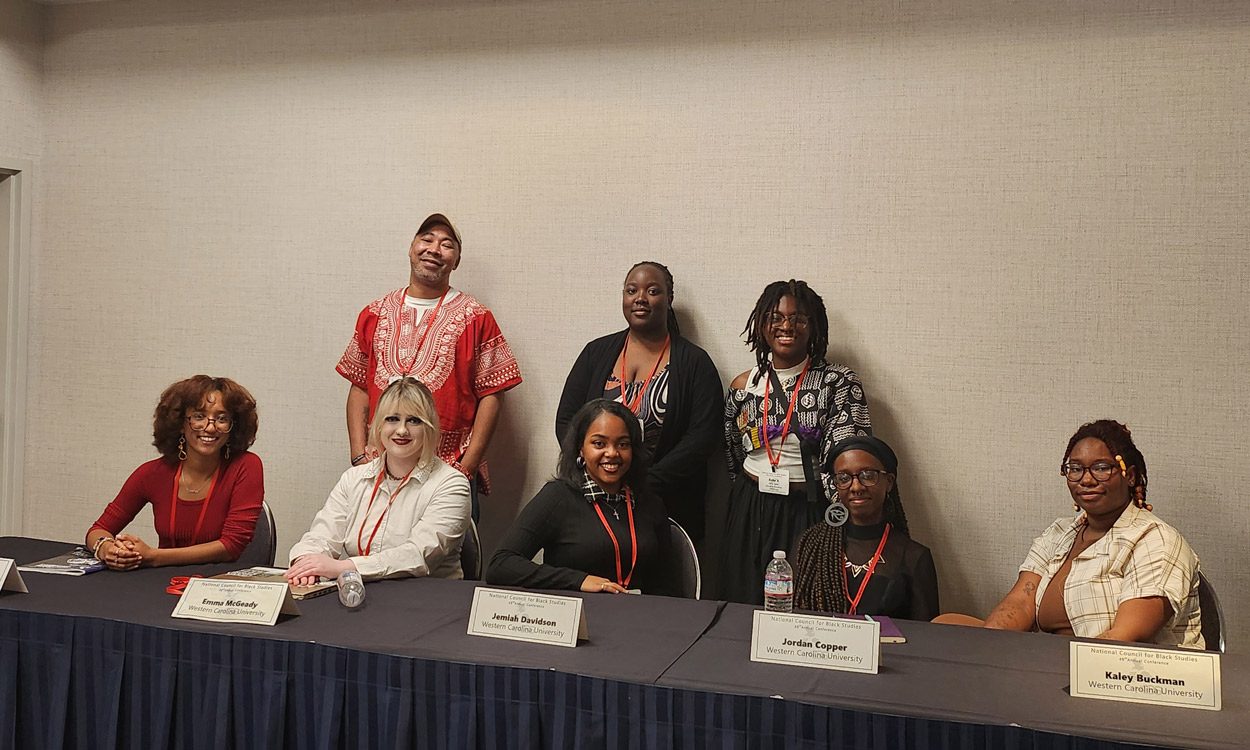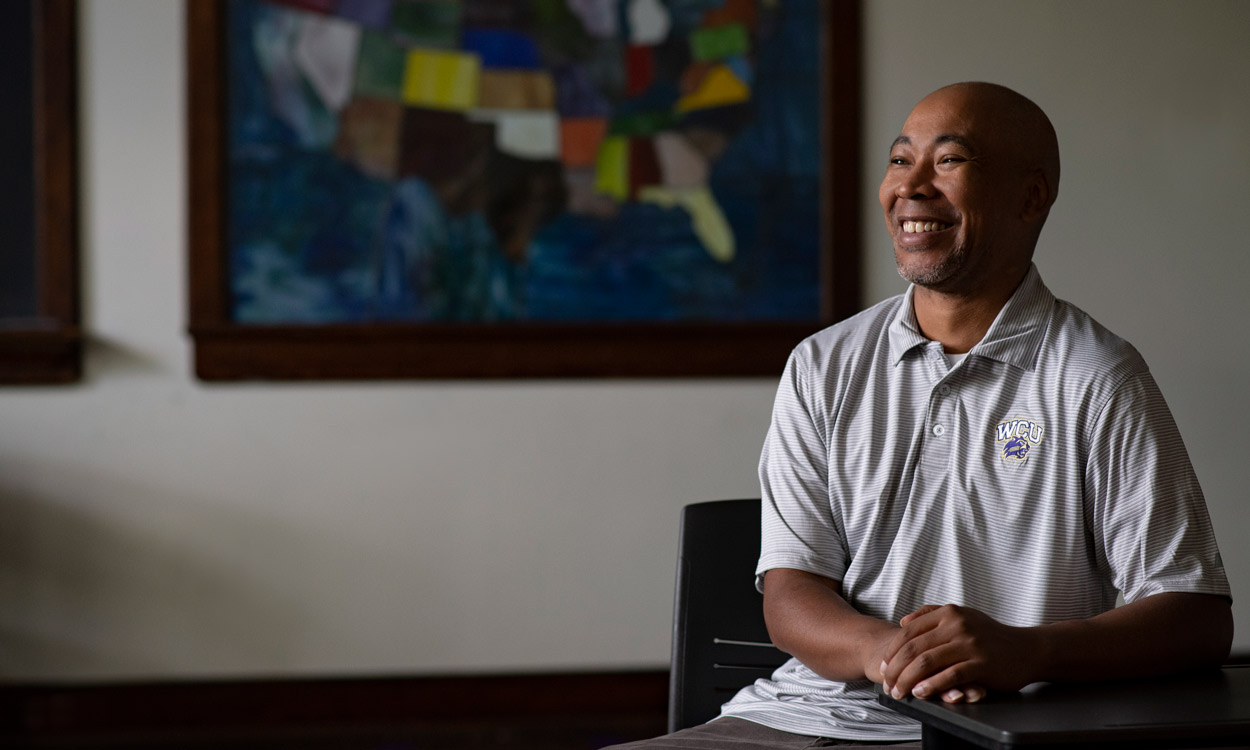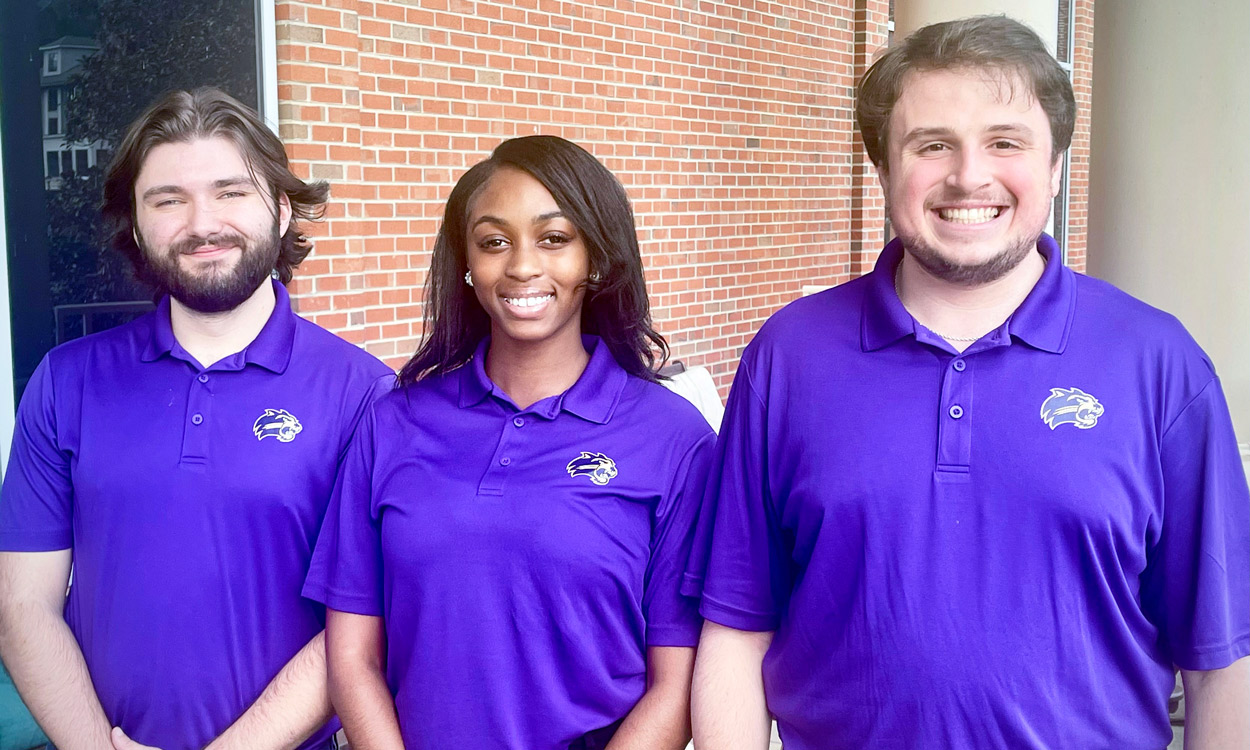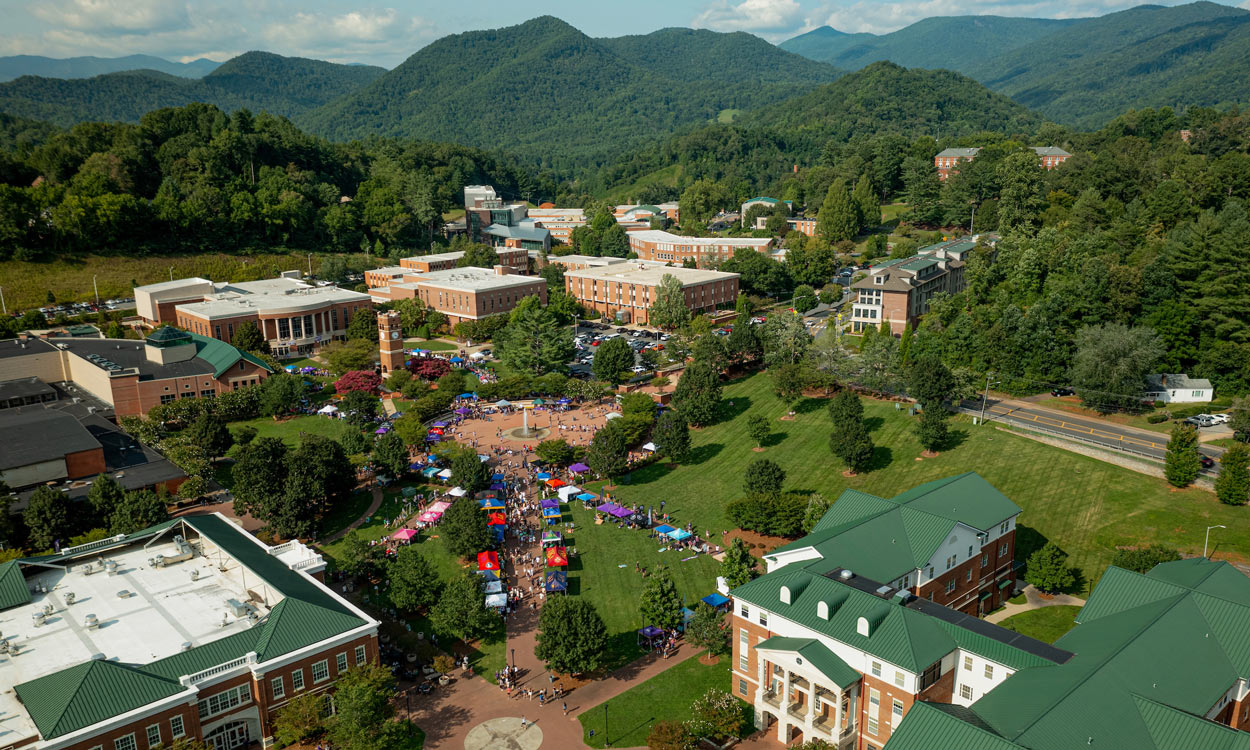Global Black Studies program shines

David Walton, director of WCU's Global Black Studies program, and students at the National Council for Black Students conference in San Jose, California.
By Chaz Lilly
Every year, the National Council for Black Studies, the preeminent professional Black studies organization, recognizes one academic program for outstanding achievement with the Sankore Institute Award.
This year’s award recipient was Western Carolina University’s Global Black Studies program.
The GBS program offers innovative curriculum that leads to a minor. Enrollment has grown rapidly since its inception in 2022 with students showcasing excellence in research, community engagement and campus leadership.
“GBS has filled a critical need by allowing more students to see themselves in our curriculum and allowing more students to understand the history and culture of Black people in our world. I particularly am excited that our GBS students have been attending professional meetings and becoming immersed in Black studies as an academic discipline," said Dave Kinner, dean of the College of Arts and Sciences.
Heading the program is David Walton, who said that GBS offers a diverse set of students – Black, white and a host of international students – an opportunity to study the black experience through a comprehensive, interdisciplinary lens. Students from any major can study in the GBS program.
“We offer students a chance for self-improvement. GBS can enhance students professionally and better prepare them for a diverse world. The program can also serve as an intervention to racist thought, and it helps WCU to recruit and retain more Black students,” Walton said.
Jasmine Burgess, a freshman double major in marketing and management, is pursuing the minor in GBS. She said Walton’s teachings encourages questions, curiosity and critical thinking.

David Walton, director of WCU's Global Black Studies program
“Dr. Walton is the first Black male educator I have ever encountered within my academic career. The GBS minor has enabled me to interact with educators with diverse backgrounds and knowledge to give me a more enriched curriculum than other fields,” Burgess said. “The minor will help me establish my identity as a Black woman, prepare myself with the academic knowledge to navigate American society and expand my view of the world and my culture.”
Khadija Nicole Davis, a senior psychology major from Goose Creek, South Carolina, said the program has helped navigate the complexities of diversity when working with clients from various backgrounds.
“The interdisciplinary nature examines the intricate interplay of race, gender, and other identities in shaping human behavior and mental health outcomes,” Davis said. “This intersectional lens not only enriches research and practice but also empowers me to advocate for social justice and equity within marginalized communities.”
Davis also extended an invitation to WCU students to consider taking a GBS class, regardless of their academic interests.
“The GBS minor provides a unique opportunity to deepen your understanding of Black culture, history and experiences. Whether you're passionate about history, sociology, literature, or any other field, GBS courses offer a transformative learning experience,” she said.

